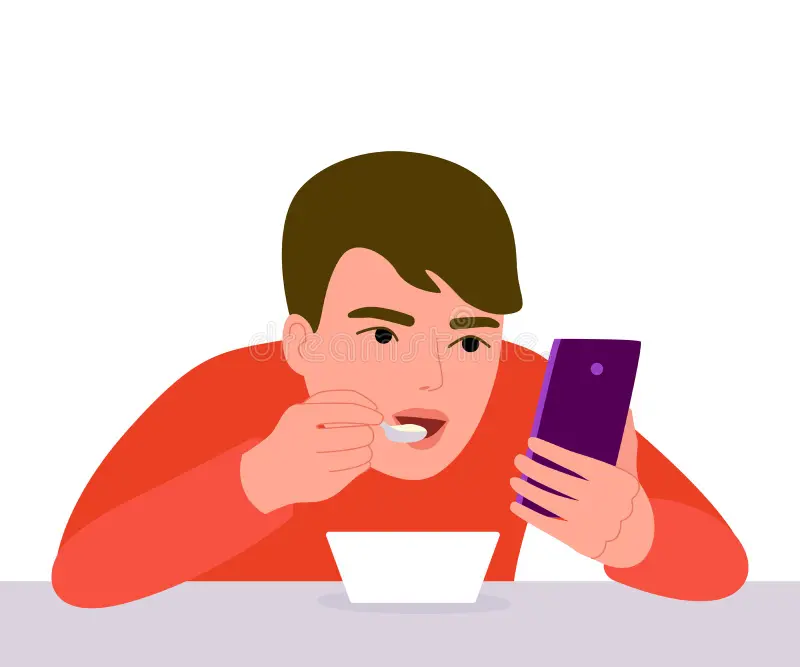
The appeal of mystery boxes and the thrill of the unknown
Mystery boxes have gained immense popularity across various online platforms, enticing consumers with the promise of exciting surprises. The concept is simple: for a fixed price, buyers receive a box containing unknown items, which can range from cheap trinkets to high-value products. This unpredictability is what makes the experience thrilling. The anticipation of what’s inside triggers a rush of excitement, much like the feeling gamblers experience when placing a bet.
The psychology behind mystery boxes is deeply rooted in the human brain’s reward system. When people engage in activities that involve uncertainty and potential rewards, their brains release dopamine, a neurotransmitter associated with pleasure and motivation. This chemical response makes mystery boxes inherently engaging. Even if the prize is not valuable, the process itself can be enjoyable, leading users to try again in hopes of a better outcome.
Marketing strategies further amplify this excitement by showcasing lucky winners who unbox rare and expensive items. Whether it’s influencers revealing high-end electronics or ordinary users striking it big, these success stories create an illusion that anyone could be next. As a result, consumers develop a sense of urgency and desire, pushing them to purchase mystery boxes repeatedly.
When excitement crosses the line into compulsive behavior
While the thrill of opening mystery boxes can be harmless fun for some, for others, it becomes a compulsive habit. The unpredictable nature of the rewards can lead individuals to chase the next big win, mirroring the cycle seen in gambling addiction. This is especially concerning for younger audiences who may not fully understand the psychological mechanisms at play.
Many consumers justify continued purchases by convincing themselves that they are “due” for a high-value item. This belief, often referred to as the gambler’s fallacy, makes individuals think that past losses increase their chances of winning in the future. However, mystery boxes operate on random algorithms, meaning each purchase is independent of the previous one. Despite this, the emotional attachment to the possibility of winning prevents many from stopping.
Compulsive mystery box buying is also fueled by the concept of sunk cost. When users spend money and don’t receive desirable items, they feel the need to keep trying in order to “recover” their investment. This mindset leads to further spending, creating a cycle that is difficult to break. Unlike traditional shopping, where consumers pay for known products, mystery boxes exploit uncertainty to keep users engaged.
The blurred line between entertainment and gambling
One of the biggest ethical concerns surrounding mystery boxes is their resemblance to gambling. While they may not always involve traditional betting, the mechanics are strikingly similar. Both rely on random outcomes, a reward-based system, and the psychological urge to keep playing. The key difference is that mystery boxes are often marketed as shopping experiences rather than gambling activities, making them more accessible to a broader audience.
Regulatory bodies in various countries have started scrutinizing mystery box platforms due to their potential to promote addictive behavior. Some have even classified them as gambling, requiring operators to adhere to strict guidelines. However, many mystery box providers operate in legal grey areas, allowing them to continue without proper oversight. This lack of regulation makes it easy for platforms to manipulate odds, leading consumers to believe they have a higher chance of winning than they actually do.
Young consumers are particularly vulnerable to this model. Unlike casino gambling, which typically has age restrictions, mystery boxes are easily accessible online. Many platforms allow purchases through prepaid gift cards, making it difficult for parents to monitor their children’s spending. This raises concerns about how mystery boxes are designed and whether they should be subject to stricter regulations.
The role of influencers in promoting mystery box addiction
Social media influencers play a significant role in shaping the popularity of mystery boxes. Many content creators produce unboxing videos showcasing expensive prizes, which can be misleading. While some influencers genuinely receive valuable items, others are given special treatment by the companies sponsoring their content. In some cases, platforms provide curated boxes with guaranteed high-value prizes to create hype, making it seem like winning is easy.
This marketing strategy capitalizes on trust. Followers often view influencers as relatable figures, believing that if someone they admire wins a big prize, they can too. However, this portrayal rarely reflects the reality of mystery box odds. The vast majority of users receive low-value items, but these experiences are not as widely shared. Instead, the narrative of frequent wins dominates, encouraging viewers to spend money in hopes of replicating the same results.
Another concerning trend is the normalization of mystery box spending among young audiences. When popular YouTubers and TikTok stars repeatedly engage in mystery box openings, they reinforce the idea that spending money on uncertain rewards is a normal and fun activity. This can desensitize viewers to the risks involved and contribute to compulsive buying behavior.
How FOMO (Fear of Missing Out) fuels excessive spending
FOMO is another powerful factor that drives mystery box addiction. When consumers see others winning exclusive or limited-edition prizes, they feel pressured to participate before they miss out on the opportunity. Platforms enhance this effect by displaying live updates of recent wins, creating a sense of urgency.
Many mystery box platforms introduce time-limited deals and flash sales, making consumers feel like they have to act quickly. A box that is only available for the next 24 hours or a special promotion tied to a specific event makes hesitation seem like a mistake. This manipulation of urgency prevents consumers from fully considering whether they truly want to make a purchase.
Even after a disappointing result, FOMO can keep users engaged. Seeing others continue to win makes them believe that their next purchase might be the lucky one. This mindset is reinforced by algorithms that show only the most exciting outcomes, ensuring that the fear of missing out remains a constant motivator.
Financial consequences of unchecked mystery box spending
For individuals who struggle with mystery box addiction, financial consequences can be severe. Unlike traditional shopping, where consumers receive tangible goods they intentionally chose, mystery boxes offer no guarantees. A person might spend hundreds of dollars without receiving anything of real value, leading to frustration and financial loss.
The addictive nature of mystery boxes can cause users to exceed their budgets, often without realizing how much they’ve spent. Because each purchase is relatively small, the costs can accumulate over time. This is similar to microtransactions in video games, where small purchases don’t seem significant individually but add up to substantial amounts.
In extreme cases, users may turn to borrowing money or using credit cards to continue buying mystery boxes. This can lead to financial instability, debt, and stress. What starts as an entertaining activity can quickly spiral into a habit that negatively impacts personal finances and overall well-being.
Recognizing the signs of mystery box addiction
Identifying mystery box addiction is crucial for preventing financial and emotional harm. Some common warning signs include repeatedly spending more money than intended, feeling anxious or restless when not purchasing mystery boxes, and justifying excessive spending by believing the next purchase will be a big win.
Another red flag is neglecting other financial responsibilities in favor of mystery box purchases. If someone prioritizes mystery boxes over essential expenses, such as bills or savings, it indicates an unhealthy relationship with the activity. Additionally, if a person feels guilt or regret after making a purchase but continues to buy more, it suggests a deeper issue.
Social withdrawal can also be a sign of addiction. If someone isolates themselves to focus on mystery box purchases or becomes overly preoccupied with the activity, it may be time to seek support. Recognizing these behaviors early can help prevent further consequences.
Steps to regain control and break the cycle
Overcoming mystery box addiction requires a combination of self-awareness, financial discipline, and support. Setting strict spending limits and sticking to a predetermined budget can help individuals regain control over their purchases. If a mystery box platform allows it, disabling notifications and promotional emails can reduce exposure to tempting deals.
Seeking alternative forms of entertainment can also be beneficial. Engaging in hobbies that provide a sense of excitement and reward without financial risk can help replace the psychological need for mystery boxes. Whether it’s video games, sports, or creative activities, finding healthier outlets for excitement can make it easier to move away from compulsive buying.
For those struggling to break the cycle on their own, seeking professional help is an option. Financial advisors can assist with budgeting strategies, while therapists can address the psychological aspects of addiction. Support groups, whether online or in person, can also provide encouragement from others who have faced similar challenges.
The mystery box industry thrives on excitement, but it’s important to recognize when that excitement turns into a problem. By understanding the psychological triggers that drive addiction and taking proactive steps to regain control, individuals can make more informed decisions and enjoy mystery boxes responsibly.
